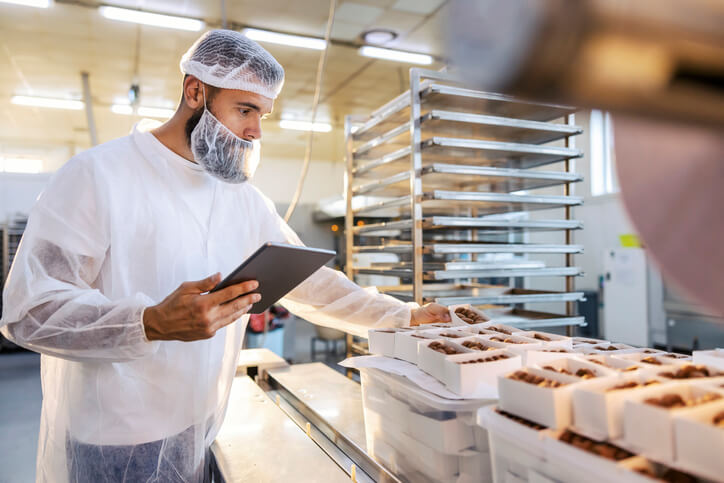The world of food technology takes you on a fascinating journey that blends science, ingenuity, and innovation, ultimately delivering exceptional culinary creations from concept to plate. At the core of this captivating field lies the product development process, where professionals navigate the intricate stages that transform ideas into delectable, market-ready food products.
Acquiring specialized knowledge and skills through training helps empower budding industry professionals to traverse this dynamic process successfully, crafting exceptional food products that tantalize taste buds and adhere to safety standards. The Food and Edible Technology, Safety and Quality Post-Graduate Diploma Program at AAPS offers students a comprehensive educational experience to cultivate a practical understanding of food safety and quality. Designed to incorporate specialized knowledge and skills, this program equips individuals with the necessary expertise to ensure the highest safety and quality standards within the food industry.
In this blog post, we will journey through the various stages of product development, highlighting the profound significance of food technology training in honing the expertise required to craft exquisite and safe food products.
Discover Idea Generation From Food Safety Courses
The journey from concept to plate begins with idea generation and conceptualization.
Generating the initial idea is frequently the most challenging aspect of product development. With a plethora of food products already saturating the marketplace, devising a new and enticing food product that captures consumers’ interest presents a formidable task.
The quest for innovation demands careful consideration of consumer preferences, emerging trends, and unexplored niches. Identifying gaps and opportunities in the market requires a blend of creativity, market research, and a deep understanding of consumer behaviour.

As you’ll discover in food safety courses, idea generation is the first step in the journey.
Food technologists draw inspiration from various sources, including consumer demands, emerging trends, technological advancements, and knowledge gained from food safety courses. During this stage, individuals trained in food technology learn to analyze market data, conduct consumer research, and brainstorm innovative ideas that align with consumer preferences and market trends. Understanding consumer needs and expectations becomes the foundation for creating a unique and marketable food product.
Conduct Research & Development in Food Technology Training
Once an idea takes shape, food technologists delve into the research and development phase. They explore different recipes, ingredients, and techniques to transform the concept into a tangible product. Food technology training equips professionals with knowledge of ingredient functionality, sensory evaluation, and formulation techniques. With a strong scientific background, they can experiment with flavour profiles, texture modifications, and preservation methods while adhering to safety standards and regulatory guidelines.

Research and development is the next stage in the product development process to be explored.
Testing and Optimization to Ensure Quality
At this stage, food technologists conduct product testing and optimization to ensure that the developed prototype meets desired specifications. They carefully analyze sensory attributes, shelf-life, nutritional composition, and quality.
Through training in food technology, professionals learn to use analytical tools, statistical analysis, and sensory evaluation methods to gather valuable feedback and make necessary adjustments. Iterative testing and refinement lead to an improved product, addressing potential issues and fine-tuning its market appeal.

As you’ll discover during food technology training, testing, and optimization ensure that food prototypes meet desired specifications.
Scaling and Production for Quality Food Outcome
Once the prototype is perfected, the focus shifts to scaling up the production process. Food technology training familiarizes individuals with the intricacies of scaling, encompassing factors such as sourcing ingredients, equipment selection, process optimization, and quality assurance. Professionals learn to develop production plans, ensure consistency, and comply with large-volume safety regulations. A deep understanding of food technology allows them to tackle challenges that may arise during manufacturing and maintain product integrity from the lab to mass production.
Are you interested in earning a food technology diploma?
Contact AAPS to learn how to get started.




